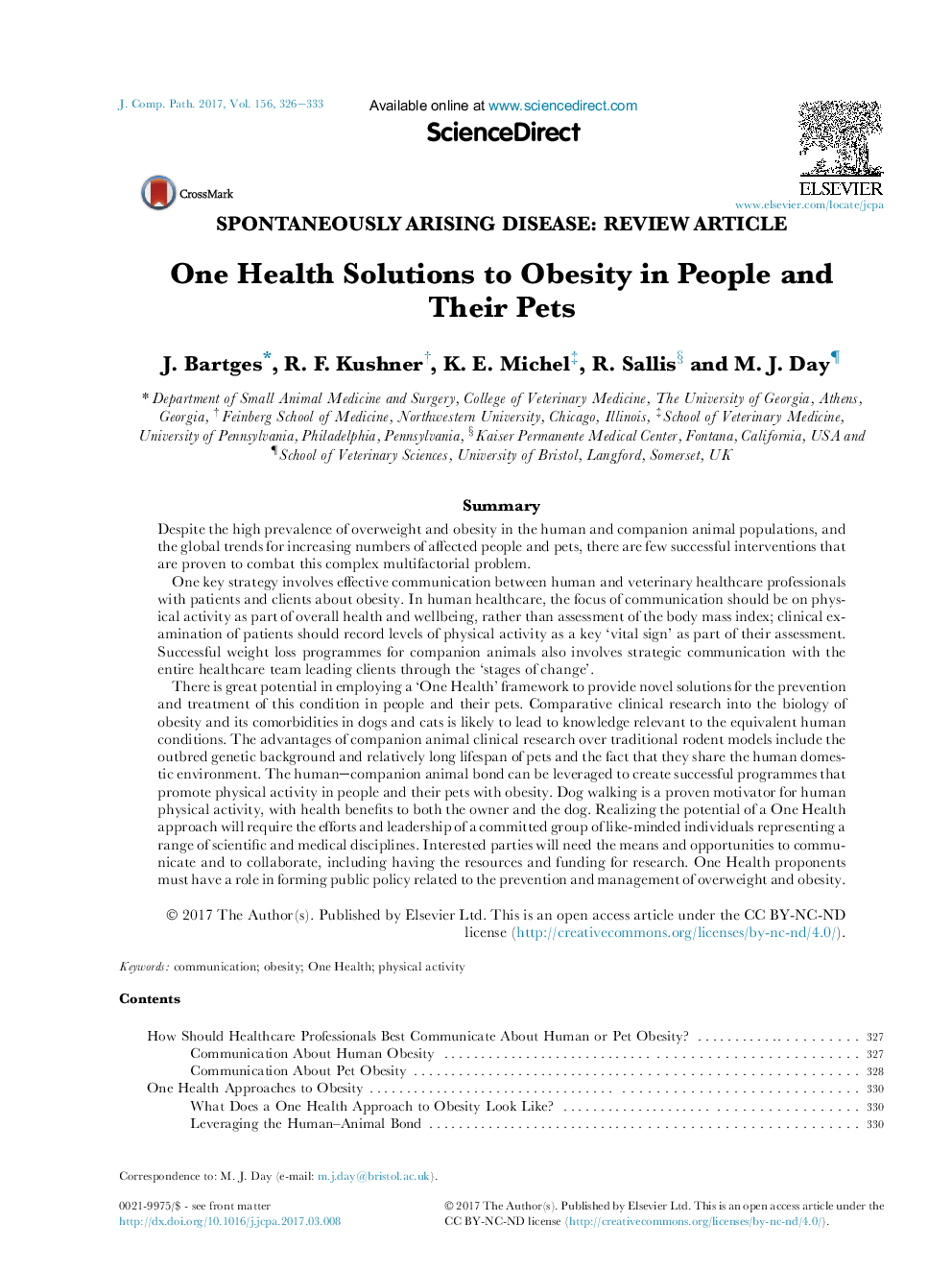| Article ID | Journal | Published Year | Pages | File Type |
|---|---|---|---|---|
| 5541447 | Journal of Comparative Pathology | 2017 | 8 Pages |
Abstract
There is great potential in employing a 'One Health' framework to provide novel solutions for the prevention and treatment of this condition in people and their pets. Comparative clinical research into the biology of obesity and its comorbidities in dogs and cats is likely to lead to knowledge relevant to the equivalent human conditions. The advantages of companion animal clinical research over traditional rodent models include the outbred genetic background and relatively long lifespan of pets and the fact that they share the human domestic environment. The human-companion animal bond can be leveraged to create successful programmes that promote physical activity in people and their pets with obesity. Dog walking is a proven motivator for human physical activity, with health benefits to both the owner and the dog. Realizing the potential of a One Health approach will require the efforts and leadership of a committed group of like-minded individuals representing a range of scientific and medical disciplines. Interested parties will need the means and opportunities to communicate and to collaborate, including having the resources and funding for research. One Health proponents must have a role in forming public policy related to the prevention and management of overweight and obesity.
Related Topics
Life Sciences
Agricultural and Biological Sciences
Animal Science and Zoology
Authors
J. Bartges, R.F. Kushner, K.E. Michel, R. Sallis, M.J. Day,
